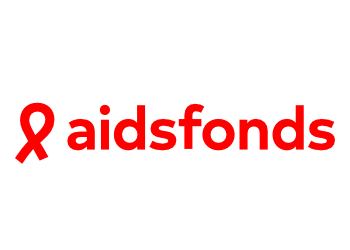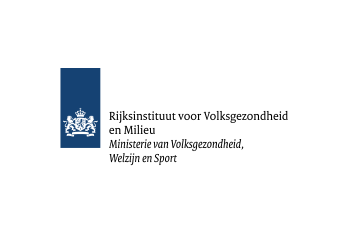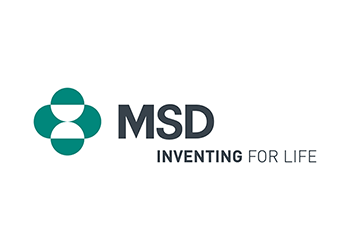Chairperson of the Hiv Vereniging Reina Foppen spoke last Thursday at the joint New Year's reception organized by - among others - Aidsfonds and the Hiv Vereniging. About the challenges facing the National HIV Alliance and the power of cooperation: "I would never have made it up to here without the help and support of others."
Words by: Reina Foppen
(For English subtitles, click the 'CC' button at the bottom in the menu of the video)
"I would like to address you as coordinator of the National HIV Alliance.
Working together towards a future in which all people with HIV in the Netherlands have the best possible quality of life, and with emphasis on those who are difficult to reach or in a vulnerable position.
At the invitation of Aidsfonds, five organizations, Mara Rotterdam, B3Positive, hello gorgeous, ShivA and Hiv Vereniging, have taken up this challenge.
And of course, this is not a task for the National HIV Alliance only.
There are so many motivated people involved in working towards this goal, from different organizations and professional and informal care settings. We are lucky that we can do meaningful work, all of which would not be possible without our many volunteers.
Over the past few weeks, I have watched several speeches. Because this is my debut, I wanted to know what others are bringing up for consideration. There was talk about the determined struggle for freedom, about fighting inequality and fighting increasing poverty. Quite a lot of struggles.
At the same time, my wish to do it differently from the white men I saw, feels uncomfortable. Because yes, I too am white and live in a rich country and I also want to address inequality. It was a tough road to get to where I am now, but it's still a much easier road than it is for a woman of color who wasn't born in the Netherlands.
I remember how vulnerable and lonely I felt only a few years ago, as a single mother with HIV, when my health failed.
How devastating was the impact of becoming a widow in Spain at the age of 26, not having residence papers. Starting all over again in the Netherlands in 1991, with the big secret of a death sentence in my pocket. And starting from scratch again when I had to seek refuge because of partner violence. Also, how vulnerable and lonely I felt only a few years ago, as a single mother with HIV, when my health failed. Compared to others, I have been so lucky. I'm in my motherland, I have family.
Imagine that you are a person of color and have no choice but to leave your country. And that you then end up in the Netherlands, in a neoliberal climate, where even being able to apply for asylum is under discussion and where all success and setbacks are attributed to your own actions. And, if you are admitted to stay, that you have to build a future for your children and yourself in a society that seems to be colluding to prevent that? Just try to imagine how incredibly impotent and abandoned from God this person feels.
In the Netherlands we think that we have arranged things quite well compared to other countries, and we pat ourselves on the back, also in the field of HIV prevention and care. Our success, our merit. According to the law, everyone here is equal, and all people have the right to medical care, including HIV care – and a roof over their heads. Why is it not possible to enforce the application of the law? Or to act according to the spirit of the law? The spirit of the law, in which we are all equally valuable. Sometimes we feel totally placed outside of any law. For example, if we apply for financial assistance and we must submit our entire medical file and every official knows that we have HIV. Or if, as a foreign student, we want to take out health insurance that accepts us and does not charge us unpayable fees because we have HIV. Or if we are sued for deliberately putting someone in danger. For the law we are equal, but we really must continue to put effort into enforcing it in the Netherlands. Legal and medical advocacy remain relevant and continue to be needed.
We live longer with HIV, but for women this is more often than for men accompanied by side effects and medical problems.
'The lack of others, that is the true hell. Being seen through the eyes of our fellow man, that makes us human.' These are the words of the Belgian psychiatrist Dirk de Wachter.
Not the struggle, but being connected to others makes us powerful. Like I am strong because there were people who saw me when I was in a vulnerable position, who listened, supported and encouraged. Even now I feel connected to them, and it's vice-versa.
In 2022, suddenly a lot of strong women with HIV appeared in the media. Selma, Michelle, Julia, Marjolijn, Jolanda, Barbra, Agnes, Saanna, Wilma, Marta, Celicia, Caroline, Jacqueline, Dinah, Hanne, Anna, Melitia, Eline, Ronnah, Marjolein. Girls, we rule the world!
This has never happened before. Perhaps this is a result of the campaign of Women Inc.
In recent years, the Hiv Vereniging has been calling for more attention to gender differences, for example in research and trials, because women get different medical problems and different side effects than men. Unfortunately, the experience of many women is that you have to go after it yourself and have to keep whining to get attention for it in the doctor's office. We live longer with HIV, but for women this is more often than for men accompanied by side effects and medical problems. HIV Monitoring Foundation’s data confirms this. And now we demand the same recognition and attention for transgender people. Transgender people and women are not only built differently than men, but they are also much more likely to experience partner violence and sexual violence. But hey, there is finally recognition and public attention for it, and that's positive! Well done!
Zero new infections should not be interpreted as: HIV is no longer a problem in the Netherlands. There are still those 24,000 people who already have HIV.
There are more positive developments worth mentioning. The Netherlands towards zero new infections, that is great and even feasible in the foreseeable future! Preventing HIV transmission is better than curing it. Oh no, you can't do that yet. I'll come back to that in a moment. Prevention is also much better than treatment, even though with one pill a day you can lead a normal life, have healthy children and cannot transmit HIV.
Please, let's make a strong case for all people who are at risk of HIV and want to protect themselves to have access to PrEP care.
At the same time, be aware that reaching that milestone - zero new infections - can easily be explained as: HIV is no longer a problem in the Netherlands. Problem solved, and on we go! But NO, we haven't solved it and that's not going to happen for the time being. Because even though there are zero new infections, new diagnoses are made every year, people with HIV come from abroad and then still there are those 24,000 people with HIV.
"A cure for HIV is really possible" as Anne Wensing was quoted in the headline of an article. Of course, Anne said much more than that. If there is more reading time, there is also more nuance. Often that time is not there. Or the attention. Or the interest.
One day in future curing HIV will be possible, but until it is widely applicable and accessible, we must make best use of what we have now. And that's a lot! So much has changed for the better in the past 40 years. I have been taking a combination of three generics for a long time now, works fine, no side effects and I am very happy with the price. A few years ago, my deductible from health insurance ran out in the second week of January. The newest development is that, in case it is more comfortable and possible for us, we can get an injection every month or every two months and perhaps soon also a depot. For these options, you no longer have to take HIV medication on a daily basis. For many people, that already feels like as if they no longer have HIV.
We generally live longer with health issues popping up, as we get a medical check-up every six months. Or we don't survive. This also happens quite often. This year my friend Sigrid passed away, shortly after her 60th birthday. She was one of the first women with HIV at national TV in the early 90s and we have kept in touch ever since. Sigrid was unlucky, got everything you can get and cancer killed her. Because yes, we really have an increased risk of cancer and what that implies is visible and tangible in our community. People die young. Not of AIDS, but of cancer, which is more likely to occur because of HIV. Right next to "A cure for HIV is really possible", there is also the story about HIV and acute leukemia from Timothy Brown, Adam Castillejo and Marc from Düsseldorf. And of all those people with HIV and leukemia, who did not survive the invasive and enormously dangerous stem cell transplant.
After the cancer diagnosis, there were fifteen large flower bouqets in his room. Not even one after his HIV diagnosis.
I share with you the story of Niels, with his permission. He was 28 years young when he was diagnosed with HIV. I met him shortly thereafter as a volunteer with our Positive Families group, he also became a peer counselor and later, a board member. Niels is still young when he is told - just over a year ago - that he has a tumor in his rectum. Anal cancer. He went through the entire medical process, and he is still recovering from that when it turns out that the tumor is back. January 24th the operation is planned in which Niels gets a stoma and let's hope and pray that the metastasis can be successfully removed. Niels really got very different reactions to cancer than to HIV, much more compassion and love. When he told his environment that he has HIV, he was mainly explaining what HIV is and how the medication suppresses the virus and he almost felt their thought: "How did you contract HIV, Niels?". But now everyone is crying along and wants to be there for him entirely.
After the cancer diagnosis, there were fifteen large flower bouquets in his room, not even one after the HIV diagnosis. Niels writes beautiful blogs about his journey, which greatly support other people with cancer, and people in their environment. Just as he supported young men with HIV as a peer counselor for the Hiv Vereniging. For him, this cancer is much worse than HIV. But would he have gotten cancer so young if he didn't have the HIV infection? It's why I find it so difficult to simply say that with one pill per day you can lead a healthy life and live to be as old as someone without HIV. It's possible, but it really doesn't apply to everyone.
On December 13th I watched on TV a beautiful documentary by Aidsfonds, made in Zimbabwe, about a "very energetic health worker" (her own words) who lives with HIV. She goes by bike to visit women and families every day to encourage them, to provide them with medicines, to monitor their health. This health worker is well, only when the women and children she supports are also doing well. Her motivation and perseverance come from being meaningful to the other person. The first step to being connected is her courage and will to see the fear of the future through the eyes of the other. She recognizes this, she knows how dark and lonely it can feel. And by making the connection, offering this peer-support, her own life also gets more meaning, and she does something positive with HIV, she uses it. What Aidsfonds is making possible through these projects is incredibly powerful. Both for mothers with HIV and their children, but certainly also for the health workers themselves.
Helping, informing and supporting and people with HIV become resilient is what we do, so that all can become more powerful.
'It is our deepest need, to be meaningful to the other, to matter '. This sentence is also by Dirk de Wachter.
"I get emotional because we won this together." This is what this wonderful woman says crying and laughing at a negative HIV test of a baby of one of the mothers she is assisting. Becoming stronger together, being able to be meaningful to the other. I too would never have come this far without this kind of help and support.
This is exactly what the National HIV Alliance in the Netherlands does: informing, supporting and helping people with HIV to become resilient – so that these resilient people can in turn inform, support and help other people with HIV to become resilient. So that everyone becomes more powerful and can have the best possible quality of life. This is important and meaningful work, which must continue, even if there are 0 new infections in the Netherlands, even if research into a HIV cure progresses, even if we have reached the 95-95-95 goals.
This work makes a huge difference for people who are completely devastated by the diagnosis, people who are sick to death, with an advanced infection, the pregnant women who test positive, people who do not manage to get their lives on track here or to maintain treatment compliance. Or people who have lived with HIV for decades and notice that their bodies are starting to wear out. And it also makes a huge difference for the people with HIV who offer this support, because they matter.
Let's make ourselves matter together for this reason, so that we can take care of all of us, that we can be meaningful, that we know ourselves to be safe and secure, and that we do not hesitate to ask for the help and care we need. Have the courage to look at the world through the eyes of the other. Open and curious; soft and friendly. So that we no longer talk about me and them. But about we and us.
This is how we will be working together towards the best possible quality of life for all people with HIV worldwide, and in the Netherlands, where we are doing relatively well.
As recited at the joint New Year's reception organized by - among others - Aidsfonds and the Hiv Vereniging, in Amsterdam on January 12, 2023
(Main photo: Henri Blommers)









